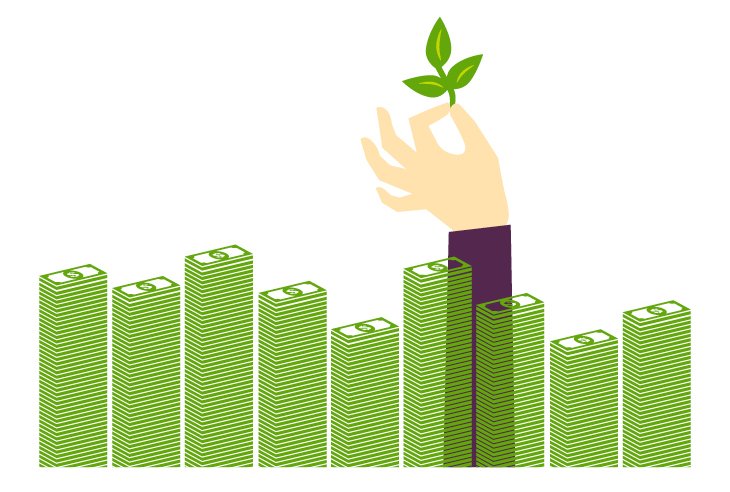Introduction
In an era where global challenges are more complex and interconnected than ever, traditional business models and investment strategies are undergoing a profound transformation. The emergence of impact funds and impact ventures represents a paradigm shift in the world of finance and entrepreneurship. This article delves into the role and significance of impact funds and ventures, examining their contributions to social and environmental progress.
Understanding Impact Funds
Impact funds, also known as impact investment funds or impact capital, are financial vehicles designed to generate both financial returns and positive social or environmental outcomes. These funds are a response to the increasing demand for investments that align with values, ethics, and sustainability. Unlike traditional investment funds, impact funds place a strong emphasis on delivering measurable and beneficial impacts alongside financial profitability.
Impact funds can be managed by various entities, including foundations, asset managers, private equity firms, and venture capital firms. What sets them apart is their commitment to making a positive difference while ensuring their investments remain financially viable.
Impact Ventures: The Driving Force
Impact ventures, on the other hand, are the engines of impact funds. These are businesses, startups, or projects that prioritize social or environmental objectives while generating profits. Impact ventures can operate in various sectors, from renewable energy and sustainable agriculture to healthcare and education. They represent a fusion of entrepreneurship and social responsibility, aiming to tackle pressing global issues through innovative and sustainable business models.
The success of impact ventures is closely tied to their ability to attract funding from impact funds, which provide the capital necessary to develop and scale their operations. This symbiotic relationship between impact funds and ventures is vital for driving meaningful change in today’s world.
Impact Funds and the Investment Landscape
Impact funds have carved a niche in the investment landscape. They offer investors the opportunity to align their financial portfolios with their personal values and ethical beliefs. Unlike traditional investments, which often focus solely on maximizing financial returns, impact funds allow investors to channel their capital into ventures that contribute to the greater good.
The investment landscape is evolving to accommodate the rise of impact funds. More financial institutions and wealth managers are recognizing the demand for responsible investing and are creating avenues for clients to access impact funds. This growing accessibility reflects the shift in investor priorities towards more sustainable and ethical financial choices.
The Benefits of Impact Funds
The growing popularity of impact funds can be attributed to several key benefits:
- Positive Impact: Impact funds contribute to solving critical societal and environmental challenges. By supporting ventures that address issues like poverty, climate change, and inequality, they make a tangible difference in the world.
- Financial Returns: Contrary to the misconception that impact investments sacrifice returns for social good, impact funds can deliver competitive financial results. They offer investors an opportunity to achieve both financial and impact-related goals.
- Alignment with Values: Impact funds resonate with investors who want their financial choices to reflect their values. These funds empower investors to be agents of positive change.
- Risk Mitigation: Impact funds often involve a diversified portfolio of investments, which can help mitigate risks associated with individual ventures. This diversification enhances the resilience of the impact investment strategy.
Read more: Impact Investing and Technology for Social Good
Types of Impact Ventures
Impact ventures are as diverse as the global challenges they aim to address. Some common types of impact ventures include:
- Renewable Energy Startups: Ventures that focus on clean energy solutions to combat climate change and reduce carbon emissions.
- Microfinance Institutions: Organizations providing financial services to underserved communities, promoting financial inclusion.
- Sustainable Agriculture Businesses: Ventures that support sustainable farming practices and improve food security.
- Healthcare Initiatives: Startups dedicated to improving healthcare access and quality, especially in underserved regions.
- Education Projects: Ventures that enhance educational opportunities, particularly in areas with limited access to quality education.
Measuring Impact: Metrics That Matter
One distinctive aspect of impact funds and ventures is the emphasis on measuring the real-world impact of investments. Investors use various metrics and frameworks to evaluate the effectiveness of their investments in achieving social and environmental outcomes.
Common metrics for impact measurement include:
- Social Return on Investment (SROI): A method for quantifying the social value generated by an investment in monetary terms.
- Environmental, Social, and Governance (ESG) Metrics: These criteria assess the ethical and sustainability performance of a business or project.
- Benefit-Cost Ratio (BCR): A measure that compares the costs and benefits of an investment to determine its value.
- Impact Reports: Detailed assessments that describe the tangible effects of an investment on various stakeholders.
Measuring impact not only helps investors make informed decisions but also ensures transparency and accountability in the world of impact finance.
Success Stories
Impact funds and ventures have already left their mark on the world, bringing about positive change in various sectors. Some notable success stories include:
- M-KOPA Solar: An impact venture that provides affordable solar energy solutions to off-grid households in East Africa, addressing both Goal 7 (Affordable and Clean Energy) and Goal 1 (No Poverty) of the United Nations Sustainable Development Goals.
- BRAC: A pioneering microfinance institution that has lifted millions of women and families out of poverty in Bangladesh and beyond.
- Tesla: Although it started as an electric vehicle manufacturer, Tesla’s impact goes far beyond automobiles. By accelerating the transition to sustainable energy, it contributes to reducing carbon emissions and achieving climate action goals.
- Ecofiltro: A Guatemalan impact venture that provides affordable water purification systems, contributing to clean water accessibility and improved health.
These success stories demonstrate the transformative potential of impact funds and ventures in addressing some of the world’s most pressing challenges.
Challenges and Criticisms
While the impact investment landscape is full of promise, it is not without its challenges and criticisms. Some common concerns include:
- Risk and Returns: Achieving a balance between financial returns and impact outcomes can be challenging. Impact investments may carry unique risks, and finding ventures that meet both financial and impact criteria can be complex.
- Impact Washing: Some ventures may overstate their impact to attract investors, leading to concerns about transparency and integrity.
- Measurement Standardization: Despite progress in impact measurement, standardization remains a work in progress. Ensuring that impact metrics are consistent and meaningful across different sectors and regions is an ongoing challenge.
- Exit Strategies: Impact investors must consider how and when to exit their investments while ensuring the sustainability of the social and environmental benefits achieved.
The Road Ahead
The future of impact funds and ventures looks promising. As awareness and commitment to social and environmental progress continue to grow, more investors are likely to embrace impact investing as a way to create meaningful change. Impact funds and ventures are expected to play an increasingly significant role in addressing global challenges and advancing the United Nations Sustainable Development Goals.
The Road Ahead
The future of impact funds and ventures is marked by exciting opportunities and challenges. As global challenges continue to mount, there’s an increasing need for innovative solutions that prioritize social and environmental progress. Impact funds and ventures are uniquely positioned to drive these solutions forward.
The following trends and developments provide a glimpse into what the future holds:
- Mainstream Integration: Impact investing is no longer a niche concept. It’s gradually becoming a mainstream investment strategy. More traditional financial institutions are recognizing the demand for responsible investing and incorporating impact funds into their offerings.
- Policy Support: Governments and regulatory bodies are introducing policies and frameworks that support impact investing. These regulations provide incentives for impact funds and ventures, encouraging more capital to flow into socially and environmentally responsible projects.
- Technology and Innovation: The rise of digital platforms and fintech solutions is making it easier for impact funds to identify suitable ventures and for impact ventures to access funding. Crowdfunding, blockchain, and impact investing apps are becoming essential tools in this space.
- Global Collaboration: Collaborative efforts between impact investors, businesses, and nonprofit organizations are on the rise. Partnerships that bring together diverse expertise and resources can address global challenges more effectively.
- New Sectors and Geographies: Impact investing is expanding into new sectors and regions. Emerging markets are becoming focal points for impact funds, recognizing the potential for impactful investments in these areas.
- Impact Measurement Advances: The field of impact measurement is evolving, with the development of standardized frameworks and metrics that can be applied across different sectors and geographic locations. This enhances transparency and allows investors to make more informed decisions.
- Environmental Focus: Given the growing urgency of environmental issues, impact funds are increasingly focusing on ventures that address climate change, promote conservation, and support sustainable agriculture and clean energy.
Read more: Impact Investing in Climate Change Mitigation
Impact funds and ventures are transforming the way we think about finance, business, and investment. They offer a path to achieving both financial success and social or environmental progress, proving that doing well and doing good can go hand in hand.
The success stories of impact ventures and the growing accessibility of impact funds demonstrate that individuals and institutions are increasingly aligning their values with their investments. This shift is not just a trend but a reflection of our evolving understanding of finance’s role in addressing global challenges.
As the demand for responsible investing continues to grow, impact funds and ventures are poised to play a pivotal role in building a more equitable, sustainable, and prosperous future. They are not just investments; they are vehicles for change, fostering innovation, and helping us address the complex, interconnected issues facing our world.
FAQs on Impact Funds and Impact Ventures
- How do impact funds generate financial returns while making a positive impact?
- Impact funds invest in ventures that are designed to be financially sustainable while achieving positive social or environmental outcomes.
- Can individual investors access impact funds, or are they primarily for institutions?
- Both individual and institutional investors can access impact funds, as there is a growing range of options available to accommodate different investment sizes.
- What are some examples of innovative technology in impact investing?
- Innovations in impact investing include crowdfunding platforms, blockchain for transparency, and impact investment apps that connect investors with impact ventures.
- Are there any sectors where impact investing is particularly focused on?
- Impact investing spans various sectors, but there is a growing emphasis on environmental issues, including clean energy, conservation, and sustainable agriculture.
- How can I, as an individual, get involved in impact investing?
- You can get involved in impact investing by researching impact funds, working with a financial advisor with expertise in this area, and exploring investments that align with your values and goals.
Conclusion
Impact funds and ventures represent a transformative shift in the world of finance and entrepreneurship. They offer a unique approach to addressing global challenges, allowing investors to generate financial returns while making a positive difference in the world. As the demand for responsible investing continues to rise, impact funds and ventures are poised to play a pivotal role in building a more equitable, sustainable, and prosperous future.
FAQs on Impact Funds and Impact Ventures
- What are impact funds?
- Impact funds are financial vehicles that aim to generate both financial returns and positive social or environmental outcomes.
- What is the relationship between impact funds and impact ventures?
- Impact funds provide the capital necessary for impact ventures, which are businesses or projects that prioritize social or environmental objectives while generating profits.
- Can impact funds provide competitive financial returns?
- Yes, impact funds can deliver competitive financial returns while making a positive impact.
- How are the impacts of impact investments measured?
- Impact investments are measured using various metrics and frameworks to assess their real-world effects on society and the environment.
- What are some common types of impact ventures?
- Common types of impact ventures include renewable energy startups, microfinance institutions, sustainable agriculture businesses, healthcare initiatives, and education projects.
Image Source: Global Impact Investing Network




